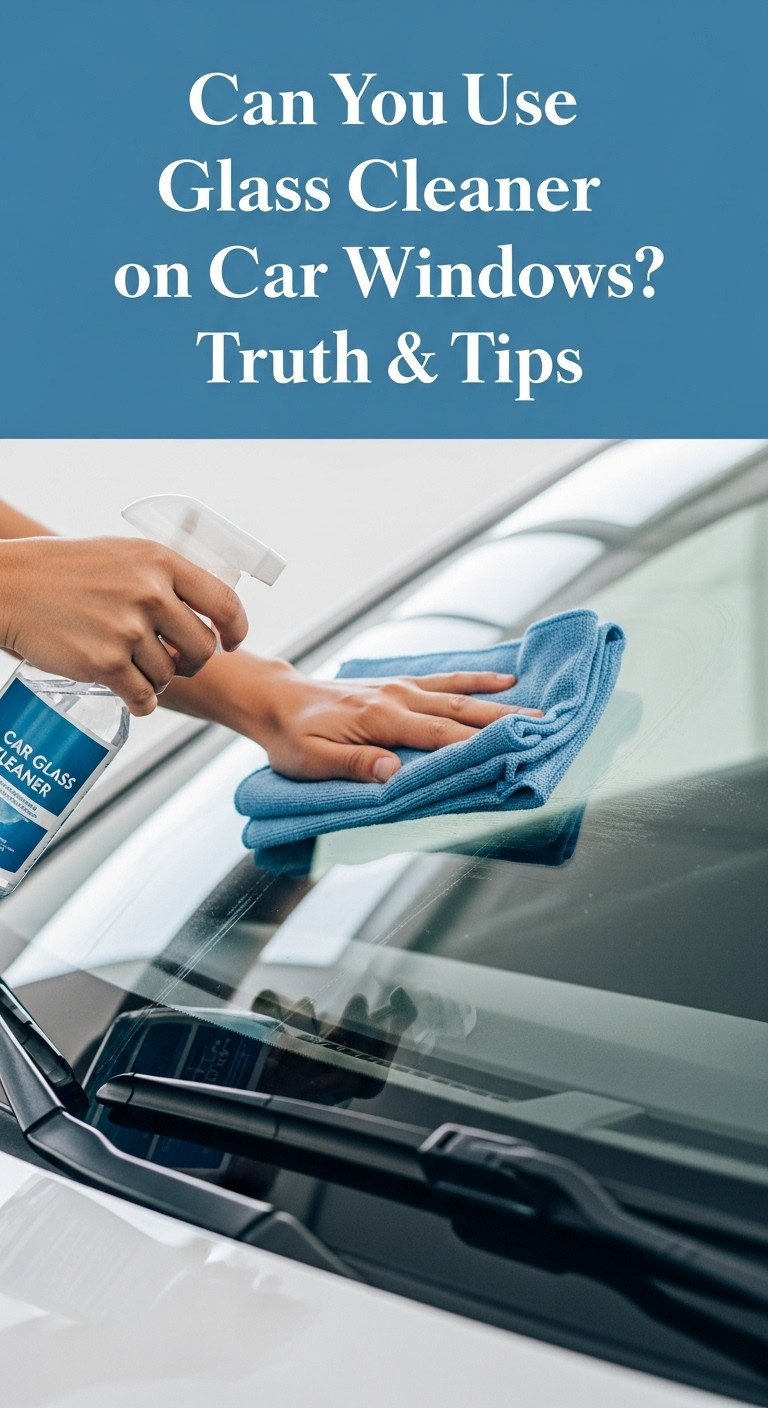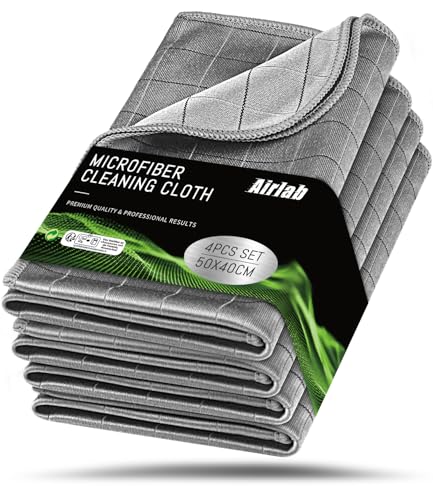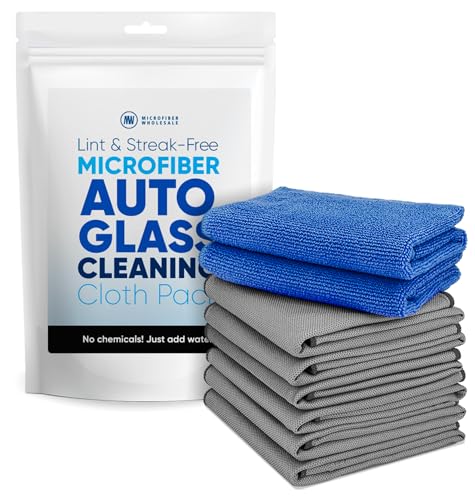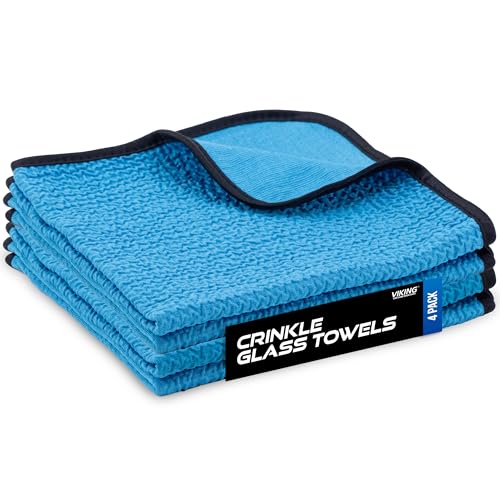Grabbing that familiar blue bottle of household glass cleaner for your car’s windshield seems like a quick, common-sense solution. But is this convenient shortcut secretly a costly mistake waiting to happen? You’re not alone in wondering if you can use glass cleaner on car windows, especially when you’re battling frustrating streaks, hazy films, and the constant fear of damaging your expensive window tint.
In most cases, it is not recommended to use a regular household glass cleaner on car windows. While it may seem to work in a pinch, cleaners containing ammonia—a common ingredient in products like Windex—can cause irreversible damage to window tint, dry out rubber seals, and even harm your car’s paint finish over time. Opting for an automotive-specific glass cleaner is always the safer and more effective choice for your vehicle.
This definitive guide unpacks the critical reasons why the right cleaner matters so much and provides the expert-level techniques you need to achieve a flawless, streak-free shine. Leveraging extensive analysis of professional detailing methods and product formulations, we’ll explore the risks of household cleaners, the clear advantages of automotive solutions, and the step-by-step professional method that guarantees crystal-clear visibility and protects your investment.
Key Facts
- Ammonia is the Primary Culprit: Many household glass cleaners contain ammonia, an ingredient that is known to break down, discolor, and cause bubbling in aftermarket window tint films.
- Cars Face Unique Contaminants: Automotive glass is exposed to specific grime like road film, tree sap, and bug residue on the exterior, and a hazy film from plastic “off-gassing” on the interior, which automotive cleaners are specifically formulated to remove.
- Sunlight Is the Enemy of a Streak-Free Finish: Cleaning windows in direct sunlight is a common mistake. The heat causes the cleaning solution to evaporate too quickly, baking streaks and residue onto the glass before you can properly wipe it away.
- Paper Towels Cause More Harm Than Good: Using paper towels to clean car windows is a recipe for frustration. They break down easily, leave behind lint, and their wood-pulp fibers can even cause micro-scratches on glass and tint.
- Clarity Equals Safety: A clean, non-streaky windshield is not just about aesthetics; it is a critical safety component. According to data from automotive safety experts, smudges and grime can significantly impair driver visibility, especially at night or in rain, increasing the risk of accidents.
The Definitive Answer: Can You Use Glass Cleaner on Car Windows?
So, what’s the final verdict? Can you use that all-purpose glass cleaner on your car? The short, direct answer is that you shouldn’t, especially as a regular practice.

While a quick spray on a non-tinted exterior window might not cause immediate disaster, the potential for long-term damage is significant. The chemical composition of household cleaners is simply not designed for the sensitive materials found in and around your vehicle’s glass. Automotive glass, with its tints, coatings, and surrounding rubber and plastic trim, requires a specialized approach.
In most cases, it is not recommended to use regular household glass cleaner on car windows. While you technically can, cleaners with ammonia (like many Windex versions) can damage window tint, rubber seals, and painted surfaces over time. Automotive-specific cleaners are the safer, more effective choice.
Ever wondered why your car windows get a specific type of grime that your house windows don’t? That hazy film on the inside and the stubborn bug residue on the outside are exactly why a dedicated solution is necessary. Let’s break down the specific risks you take when you reach for a household cleaner.
Why Household Glass Cleaners Can Be a Bad Idea for Your Car
Using a standard household glass cleaner, such as many common Windex formulas, on your vehicle is a gamble with potentially expensive consequences. These products are formulated for the durable, simple glass found in homes, not the complex environment of a car. The primary ingredient to watch out for is ammonia, but other harsh chemicals can also pose a threat to your vehicle’s delicate surfaces.
Here are the primary dangers you need to be aware of:

- Irreversible Damage to Window Tint: This is the biggest and most costly risk. Ammonia is a powerful chemical that can react with window tint film, causing it to bubble, peel, discolor, and break down. Once this damage occurs, the only solution is to have the tint professionally stripped and replaced, a costly and time-consuming process.
- Harm to Your Paint Finish: When you spray glass cleaner on your windows, overspray is inevitable. If a cleaner containing ammonia or other harsh detergents lands on your car’s body, it can strip away the protective layers of wax or ceramic coating. Over time, repeated exposure can even begin to dull and damage the paint finish itself, particularly the clear coat.
- Drying and Cracking of Rubber Gaskets: The rubber gaskets and seals around your windows are essential for keeping water and wind noise out of your cabin. The chemicals in many household cleaners can dry out these rubber and plastic components, causing them to become brittle, shrink, and eventually crack. This leads to leaks and compromises the integrity of your vehicle’s seals.
- Damage to Interior Surfaces: The risk isn’t just on the outside. Overspray inside the car can land on your dashboard, door panels, and leather seats. These materials can be stained, discolored, or dried out by chemicals not intended for automotive interiors.
Pro Tip: Always check the label on any cleaner for ammonia before it comes anywhere near your vehicle’s tinted windows. If a product doesn’t explicitly state it’s “ammonia-free” and “tint-safe,” it’s best to avoid it.
The Automotive Advantage: Why Car-Specific Glass Cleaners Are Better
Now that you understand the risks, what makes automotive glass cleaners the superior choice? It all comes down to a specialized formulation designed to solve car-specific problems safely and effectively. Unlike their household counterparts, these cleaners are engineered to work in harmony with all the materials in your vehicle, from the glass itself to the surrounding trim and interior surfaces.
The difference is clear when you compare them side-by-side. Automotive cleaners are built to tackle a completely different set of challenges while prioritizing the safety of your investment.

Quick Fact: The hazy film on your interior windshield is often caused by ‘off-gassing’ from your car’s plastic dashboard, a problem automotive cleaners are built to solve. This oily residue is difficult to remove with standard cleaners but is no match for a quality automotive formula.
Here’s a breakdown of the key advantages:
| Feature | Household Cleaner | Automotive Cleaner |
|---|---|---|
| Tint Safety | Often contains ammonia, which damages tint. | ✅ Ammonia-Free; specifically formulated to be safe for all window tints. |
| Contaminant Removal | Designed for dust, fingerprints, and kitchen grease. | ✅ Engineered to cut through tough road grime, bug splatters, tree sap, and interior off-gassing film. |
| Finish | Prone to streaking, especially in sunlight. | ✅ Formulated for a streak-free finish to ensure maximum driver visibility and safety. |
| Surface Safety | Can damage paint, rubber, and plastic trim. | ✅ Safe for overspray on surrounding automotive surfaces like paint, rubber, and vinyl. |
Brands like Rain-X, Sprayway, and Chemical Guys have built their reputations on creating products that deliver these benefits consistently. When you use an automotive glass cleaner on car windows, you’re not just cleaning the glass; you’re using the right tool for the job, ensuring a better result and protecting your vehicle from harm.
How to Clean Car Windows Without Streaks: The Professional Method
Knowing what to use is only half the battle. The other half is knowing how to use it. Achieving that perfectly clear, streak-free finish that looks like it just rolled off the showroom floor requires the right technique. Professional detailers rely on a simple yet highly effective process known as the “two-towel method” to get flawless results every time. Forget paper towels and old rags; this method ensures you remove all contaminants without leaving behind any frustrating streaks or lint.
Ready to get that crystal-clear finish? Follow these steps exactly for a result you’ll be proud of.
Step 1: Gather the Right Tools
Before you start, assembling the correct equipment is crucial for success. Using the wrong materials can lead to scratches and streaks, undermining all your effort.
- Automotive Glass Cleaner: Choose a high-quality, ammonia-free cleaner. A foaming cleaner can be particularly effective as it clings to vertical surfaces, giving the formula more time to break down grime without dripping onto your paint.
- Two Waffle Weave Microfiber Towels: This is non-negotiable. Waffle weave towels have small pockets that are excellent for trapping dirt and absorbing liquid, making them perfect for glass. Avoid paper towels at all costs, as they leave behind lint and can scratch your windows.
Pro Tip: Use two different colored microfiber towels—one for cleaning, one for buffing. This simple trick prevents cross-contamination and guarantees a streak-free final wipe.
Step 2: Clean the Exterior Glass
The exterior glass is exposed to the harshest elements, so it’s often the dirtiest. Follow this specific wiping pattern to make streak identification easy.
- Work in the Shade: Never clean your glass in direct sunlight. Remember: Direct sunlight is the enemy of a streak-free finish. It makes the cleaner evaporate too fast! The glass surface should be cool to the touch.
- Spray the Cleaner: Lightly mist the automotive glass cleaner directly onto the exterior window. Don’t oversaturate it; a little goes a long way.
- Wipe Vertically: Take your first microfiber towel (the cleaning towel) and wipe the glass in a straight, up-and-down motion. This helps you instantly know if any remaining streaks are on the outside or inside.
- Buff Immediately: Before the cleaner can dry on its own, quickly take your second, completely dry microfiber towel (the buffing towel) and buff the glass to a crystal-clear shine.
Step 3: Clean the Interior Glass
The interior glass, especially the windshield, can be tricky due to the steep angle and proximity to the dashboard. This technique prevents overspray and makes the job much easier.
- Spray Cleaner onto the Towel: This is the most important step for interior glass. Never spray cleaner directly onto the inside of your windows. Doing so will cause overspray to settle on your dashboard, instrument panel, and audio system, potentially causing damage. Instead, lightly spray the cleaner onto your cleaning towel.
- Wipe Horizontally: Clean the interior glass using a side-to-side motion. By wiping the inside horizontally and the outside vertically, you can immediately tell which side a streak is on if you miss a spot.
- Buff Dry: Just as you did on the exterior, immediately follow up with your clean, dry buffing towel to remove any remaining moisture and polish the glass to perfection.
Is the inside of your windshield the hardest part? You’re not alone. This technique prevents overspray and makes it much easier. For better access to the interior windshield, try sitting on the passenger side; it often provides a better angle to reach the entire surface.
To achieve that professional, streak-free shine on your car windows, having the right tools is essential. High-quality automotive glass cleaners and dedicated microfiber towels make all the difference in safely removing grime without causing damage.
FAQs About Using Glass Cleaner on Car Windows
Even with the main question answered, you might have a few more specific queries. Here are direct answers to some of the most common follow-up questions about using glass cleaner on car windows.
Can I use ammonia-free Windex on my car windows?
While ammonia-free Windex is safer for tinted windows than the original formula, it’s still not ideal. Household cleaners are not formulated to tackle the specific types of contaminants found on automotive glass, like road grime and interior off-gassing film. For the best, most effective, and streak-free results, a dedicated automotive glass cleaner is always the superior choice.
What’s the best homemade car window cleaner?
Many DIY recipes suggest a mixture of vinegar and water. While this can work in a pinch, it’s generally not recommended. Vinegar is acidic and can potentially damage the soft plastics, rubber seals, and even the dashboard over time with repeated exposure from overspray. Professionally formulated automotive cleaners are pH-balanced and tested to be safe for all vehicle surfaces.
Is it safe to put Windex or glass cleaner in my car’s wiper fluid?
Absolutely not. This is a dangerous and damaging practice. Household glass cleaners can degrade the rubber and plastic components of your windshield washer system, including the reservoir, pump, and hoses, leading to expensive repairs. Furthermore, when sprayed onto a hot windshield, the ammonia can create toxic fumes and leave a streaky residue that impairs visibility. Only use fluid specifically designated as “windshield washer fluid.”
Can I use Sprayway Glass Cleaner on my car windows?
Yes, Sprayway Glass Cleaner is a highly regarded product that is popular with both consumers and professional detailers. It is known for being ammonia-free, making it completely safe for tinted windows. Its foaming action helps it cling to the glass to dissolve dirt and grime effectively, and it’s praised for leaving a streak-free finish.
Can you use glass cleaner on the outside of a car body or paint?
This is not recommended. Glass cleaners, especially those with ammonia, can strip wax, sealants, and ceramic coatings from your car’s paint. While it might clean a small spot of bird droppings in an emergency, it’s not designed for painted surfaces and can dull the finish over time. Always use a dedicated car wash soap or quick detailer spray for your car’s bodywork.
What’s the best thing to use to clean a car window if I don’t have special cleaner?
If you’re in a bind and have no automotive glass cleaner, the safest alternative is simply a clean, high-quality microfiber towel lightly dampened with clean water. This will help remove light dust and smudges without introducing any harmful chemicals to your vehicle’s sensitive surfaces. Follow up with a dry microfiber towel to prevent water spots.
Final Summary: The Key to Crystal-Clear, Safe Car Windows
When it comes to the question, can you use glass cleaner on car windows, the answer is now clear. While technically possible, using household cleaners is a risky shortcut that jeopardizes your window tint, rubber seals, and paint. The smart, safe, and effective solution is to invest in a quality automotive-specific glass cleaner and the right tools for the job. By doing so, you’re not just cleaning your windows—you’re protecting your vehicle and ensuring the best possible visibility for safe driving.
To recap the most critical takeaways for achieving a professional, streak-free result every time:
- Always Avoid Ammonia: Your number one rule is to steer clear of any glass cleaner containing ammonia, as it is the primary enemy of window tint.
- Choose Automotive-Specific Cleaners: These products are specially formulated to cut through road grime and interior film without harming your car’s sensitive materials.
- Master the Two-Towel Method: Use one waffle weave microfiber towel for cleaning and a second, dry one for immediate buffing to eliminate streaks and lint.
- Technique Matters: Clean in the shade, wipe the exterior vertically, and wipe the interior horizontally to easily spot any leftover streaks.
Now you have the professional knowledge to get a perfect, streak-free shine every time. Grab your microfiber towels and give your car the clarity it deserves
Last update on 2025-10-24 / Affiliate links / Images from Amazon Product Advertising API













![Can You Trade a Car Without a Title? Dealership Guide [year] 19 Can You Trade a Car Without a Title? Dealership Guide [year]](https://carxplorer.com/wp-content/uploads/2025/10/Can-You-Trade-a-Car-Without-a-Title-Dealership-Guide-year-2-60x60.jpg)